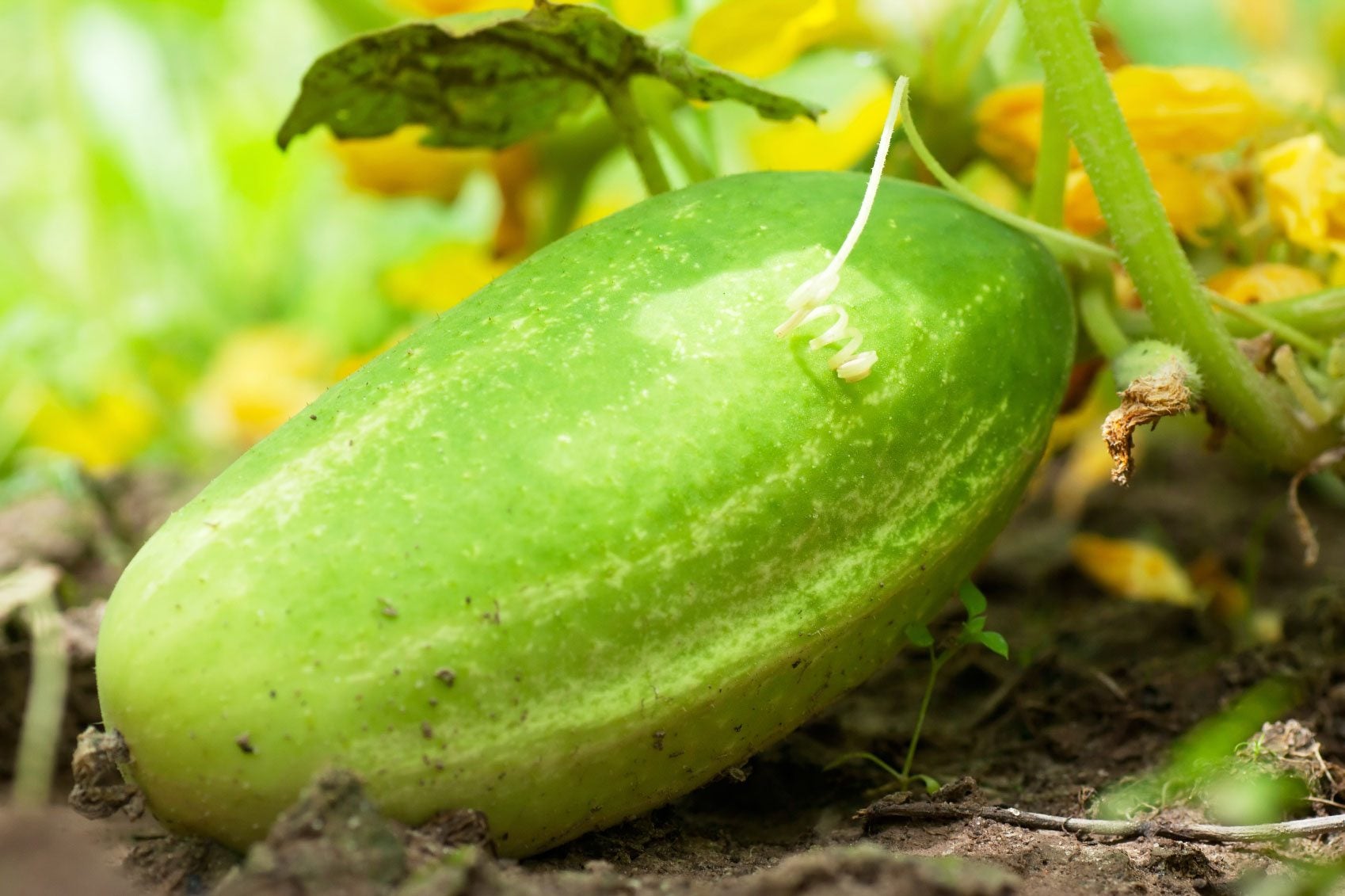Cucumber Seed Collection: Tips For Harvesting & Saving Seeds From Cucumber

There is currently a fabulous heirloom seed collection that is the direct result of our great or great-great grandparent's forethought (and/or thriftiness) in saving seeds from each crop season. Seed saving is rewarding and cost saving to the home gardener, but some seeds take a bit more TLC to save than others. Cucumber seed collection, for instance, requires a little bit of knowledge.
Saving Seeds from Cucumbers, Yes or No?
Well, yes and no. Saving seeds from cucumbers is definitely doable if you keep a couple of points in mind. First of all, don't attempt to collect seeds from any cukes that are labeled hybrid. Hybrids are created by cross breeding specific parent plants selected for an outstanding characteristic, but seeds saved from these plants will not reproduce a true copy of the parent plant, and in fact, are often sterile. Secondly, since cucumbers require either insect pollinators, wind, or people to transfer their pollen from plant to plant, they are left open to cross pollinate with other members within the family. Thus, you may end up with an odd mix of cucumber crosses when collecting cucumber seeds. It would be necessary to isolate the plant you wish to save seeds from by planting it well away from its cousins, which isn't always practical for the average home gardener's modest plot. Lastly, seeds can transmit some diseases, so be sure that when cucumber seed saving, no disease has infected the crop that you are trying to harvest.
How to Harvest Cucumber Seeds
With all that said, I say gardening is all about experimenting, so why not have a go at it? Choose cucumber varieties to save seed from which are least likely to need to be isolated due to open pollination; these include Armenian cukes, West Indian gherkins, and serpent gourds which belong to different families and do not cross. Grow only one variety or separate by one half mile (1 km.) to eliminate the possibility of cross pollination. For the most optimal cucumber seed collection, select from only disease-free plants which have the most flavorful fruit. Seed must be harvested when the fruit is mature, so allow the cucumber to languish on the vine past its eating stage-- near the end of the growing season. Fruit will be orange or yellow when fully ripe, and ready to pluck mature seeds from. In order to harvest seeds from fleshy fruits such as cukes or tomatoes, the wet method of removal should be applied. Remove the seeds and allow them to ferment in a bucket for three days with a small amount of warm water in order to remove the gel coating surrounding the seeds. Stir this concoction daily. This fermentation process kills viruses and separates the good seeds from the pulp and the bad seeds. The good seeds will sink to the bottom while the bad seeds and pulp float at the surface. Pour off the pulp, water, mold, and bad seeds carefully after your three days have passed. Remove the good seed and spread them on a screen or on paper towels to dry thoroughly. Once completely dry, your seeds can be stored in envelopes or a glass jar with a clear label specifying the date and variety. Place the container in the freezer for two days to kill any residual pests and then store in a cool, dry place such as the refrigerator. Seed viability decreases over time, so be sure to use the seed within the next three years.
Love Gardening Know How? Our latest book, The Complete Guide to Vegetable Gardening, is available now!
Perfect for the gardener in your life, or for your own coffee table, this book boasts 224 pages of high-quality pictures, expert tips, and easy-to-follow advice to get your vegetable garden growing its best. Look for it at these sellers, and wherever quality books are sold.
Sign up for the Gardening Know How newsletter today and receive a free copy of our e-book "How to Grow Delicious Tomatoes".

Amy Grant has been gardening for 30 years and writing for 15. A professional chef and caterer, Amy's area of expertise is culinary gardening.
